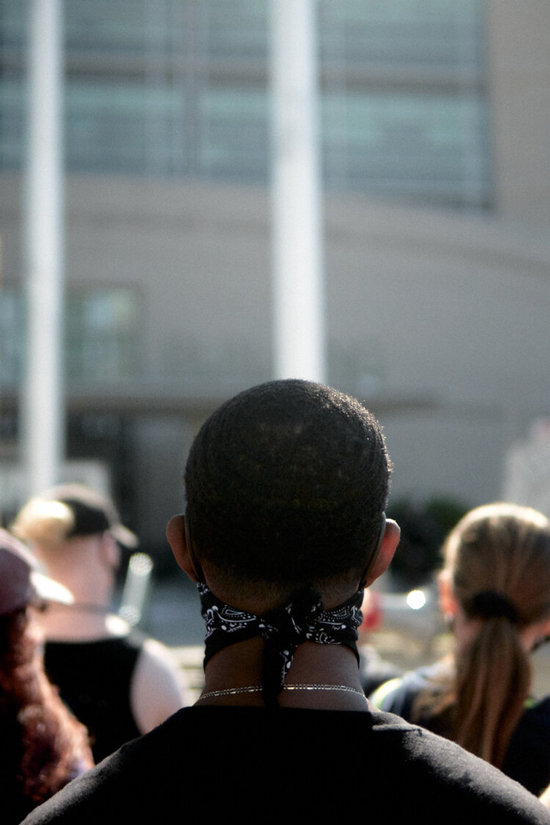Being and Becoming: The Grammar of Black Theory
By Matthew Omelsky Featured Image: Protester at the Rochester Public Safety Building, June 2020. Photo by Martin Hawk, part of Pressure Gradient. There’s a place in her 2009 essay, “Becoming Modern Racialized Subjects,” when Hazel Carby’s focus feels very much of our moment. Reading a series of early passages in The Interesting Narrative of the Life of Olaudah Equiano, Carby notes how, in the encounter with his European captors on the West African coast, a young Equiano is transformed into a kind of nothingness. In the moment of his racialization, she suggests, Equiano is rendered “cargo,” he’s “dehumanized.” “Terror and anguish follow Equiano’s realization of the fragility, vulnerability and possible annihilation of the self, and movement, speech and consciousness cease, registering his symbolic death.”1 The entirety of Equiano’s narrative is a kind of writing back to this moment of dehumanization, so that he might become something other than the abject, annihilated being he became in that inaugural encounter. He exudes, Carby goes on to say, a “constant urge to move beyond” the “body politics of …

